neurological-diseases
Please view new version of this page
Click here:
The GNC Dubai presents a selection of neurological diseases:
 Stroke
Stroke
Epilepsy
Multiple Sclerosis
Parkinson’s Disease
Polyneuropathy
Lower back pain, lumbar pain
Nerve Damage
Trapped Nerves, Carpal Tunnel Syndrome
Radiculopathy
Slipped Disk
Migraine
Headache
Vertigo
Myasthenia gravis
Stroke
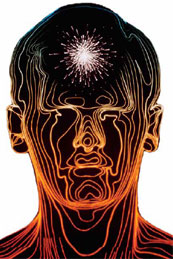 A Stroke is a serious illness which can be fatal. It is caused by the occlusion of a blood vessel that supplies the brain. This will lead to the disturbance of relevant physical functions such as:
A Stroke is a serious illness which can be fatal. It is caused by the occlusion of a blood vessel that supplies the brain. This will lead to the disturbance of relevant physical functions such as:
- acute palsies of arms, legs or parts of the face, numbness, prickling, speech disorders as well as other neurological defects.
Another cause for a stroke can be a cerebral haemorrhage which might occur due to the bursting of a cerebral vessel. Both forms of cerebral apoplexy need immediate treatment in a specialized hospital (stroke unit) where the trained doctors will try to dissolve the occlusion or stop the haemorrhage respectively.
Prior to all apopleptic events attention should be given to the above mentioned symptoms which are strong indicators of an arteriosclerotic process even though they might be only temporary. Such temporary attacks are known as TRANSIENT ISCHAEMIC ATTACKS. They must be taken seriously and must lead to the immediate consultation of a neurologist in order to avoid a more severe development of the symptoms.
After a stroke has taken place without early efficient clinical treatment and with following severe damages and disabilities, professional rehabilitation is necessary as early as possible to regain mental and physical abilities that might have been lost.
Following or concomitant neurological care and treatment is of the utmost importance to control the cerebral arteriosclerotic condition and prevent any further apoplectic event.
Most important is the reduction of all relevant risks such as high blood pressure, obesity , smoking, drinking and lack of exercise.
GNC, German Neuroscience Center (Neurology, Psychiatry, Psychology, Counseling in Dubai, UAE)
Epilepsy
Epilepsy is an illness of the brain which expresses itself in fits or seizures. The most well-known form of fit is the generalized tonic-clonic seizure which comes along with loss of consciousness, drop or convulsions. There are, however, other forms of seizures that are not so commonly known, which express themselves in the twitching of an arm or a leg or disorder of consciousness or absences.
The causes for epilepsy are manifold and can have their origin in brain damage or hereditary facts. However, due to the drug development of recent years there are very efficient possibilities to treat patients with epilepsy so effectively that the majority can lead an entirely normal life without any seizures at all. In severe cases neurosurgical interference may offer help.
GNC, German Neuroscience Center (Neurology, Psychiatry, Psychology, Counseling in Dubai, UAE)
Multiple sclerosis
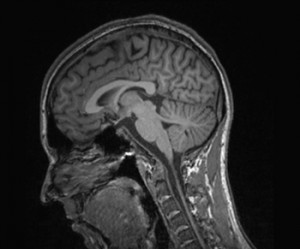 Multiple sclerosis is an auto-immune disease in which the auto-immune system of the body attacks the nerves and especially their myelin sheaths. The illness usually starts at a fairly young age and becomes chronic. Although this disease can as yet not be entirely cured, there is a variety of new drugs, for example interferon, which are very effective.
Multiple sclerosis is an auto-immune disease in which the auto-immune system of the body attacks the nerves and especially their myelin sheaths. The illness usually starts at a fairly young age and becomes chronic. Although this disease can as yet not be entirely cured, there is a variety of new drugs, for example interferon, which are very effective.
Besides the necessity to apply the appropriate medication in order to alleviate symptoms like palsies, pains, vision disorders, blindness and other neurological symptoms, there are also physiotherapy and other therapeutic measures that can be helpful.
GNC, German Neuroscience Center (Neurology, Psychiatry, Psychology, Counseling in Dubai, UAE)
Parkinson’s disease
Parkinson’s disease belongs to the group of movement disorders and expresses itself by trembling (tremor), rigidity (limb stiffness) and akinesia (diminishment of movements). Very often the changes in movement are very discreet and therefore an early diagnosis is often difficult. In the long run, however, Parkinson’s disease may result in severe handicaps and disabilities.
Aetiologically this is caused by the deterioration of specialized nerve cells which are responsible for the design, the development and the realization of movements.
However, there may be other symptoms such as a reduction of superior intellectual brain functions, psychic symptoms such as depression but also disorders of vegetative bodily functions.
Whereas in treating Parkinson’s disease the main focus will be on adequate medication, physiotherapy, dancing or other physical exercises are also useful therapeutic means.
In severe cases neurosurgical intervention might be necessary which is known as deep-brain-stimulation.
GNC, German Neuroscience Center (Neurology, Psychiatry, Psychology, Counseling in Dubai, UAE)
Polyneuropathy
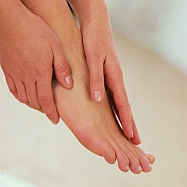 Polyneuropathy means the affection of many nerves due to very different reasons and it can therefore develop many different symptoms. Most frequent are paraesthesia such as prickling, numbness, burning of the feet, but also palsies, disorders of speech and failure of cerebral nerves.
Polyneuropathy means the affection of many nerves due to very different reasons and it can therefore develop many different symptoms. Most frequent are paraesthesia such as prickling, numbness, burning of the feet, but also palsies, disorders of speech and failure of cerebral nerves.
Similar to the variety of symptoms there is also a large variety of causes for this disease. The most frequent reason is a metabolic disorder such as diabetes mellitus. But also hereditary disposition, toxic inhibition or paraneoplastic development can cause polyneuropathy.
Accordingly, diagnostics and therapy of polyneuropathies are manifold and difficult. The therapeutic aim must be to prevent the deterioration of the nerves itself on the one hand and to treat the illnesses causing polyneuropathy on the other hand.
Should both turn out to be impossible, palliative methods may be used to ease the symptoms, especially pain, by applying special medication and physiotherapy.
More about Diabetic Polyneuropathy:
GNC, German Neuroscience Center (Neurology, Psychiatry, Psychology, Counseling in Dubai, UAE)
Lower back pain / lumbar pain / radiculopathy / slipped disk
Nerve damages/ trapped nerves / carpal tunnel syndrome
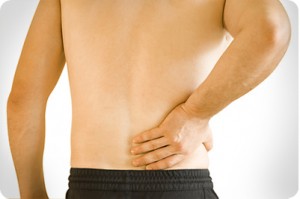 In their anatomical course through the body and the limbs nerves might be damaged in various ways, the cause of damage most often being traumatic. Symptoms of nerve damage may be prickling, numbness and pain but also palsy or disorders of the bladder or the rectum. Lower back pain is one of the most common complaints today. Up to 80% of the US-Population will suffer from back pain at least ones in their lives. Back pain or lumbar pain is the largest cause of work-related absence in the United Kingdom.
In their anatomical course through the body and the limbs nerves might be damaged in various ways, the cause of damage most often being traumatic. Symptoms of nerve damage may be prickling, numbness and pain but also palsy or disorders of the bladder or the rectum. Lower back pain is one of the most common complaints today. Up to 80% of the US-Population will suffer from back pain at least ones in their lives. Back pain or lumbar pain is the largest cause of work-related absence in the United Kingdom.
Very often nerves are trapped at the spinal cord, the backbone or in their course to the limbs. The reason for this may be some injury, a slipped disk or the trapping of a nerve in a bony or connective tissue canal. A typical example is the carpal tunnel syndrome.
What to do? Prior to surgical decompression therapy, reliable neurological diagnostic methods should be applied to locate the damage exactly. Symptomatic therapy including physiotherapy and special back pain therapy might also be of help.
GNC, German Neuroscience Center (Neurology, Psychiatry, Psychology, Counseling in Dubai, UAE)
Carpal Tunnel Syndrome
You’ve been plagued by numbness and tingling in your fingers and wrist. You are waking up at night with a “pins and needles” sensation in one hand? There might be other explanations, but the symptoms suggest you may have carpal tunnel syndrome. Is it dangerous? No. But to ignore the symptoms may cause damage of the nerve and the muscles. What is to do?
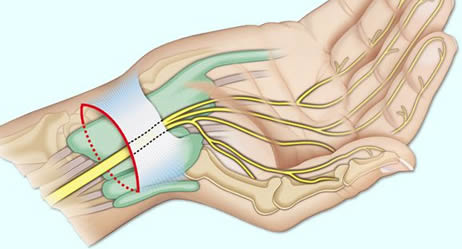
- The median nerve (yellow) in the carpal tunnel (red marked)
In carpal tunnel syndrome (CTS), one of the nerves to the hand (the median nerve) becomes compressed as it passes through the wrist. There are different causes which can lead to CTS like occupational overstressing of the hands, injuries at the wrist with malposition of the carpal bones, arthritis, pregnancy, diabetes, overweight and others. Also a genetic predisposition is discussed. In many cases, no single cause can be identified. It may be that a combination of risk factors contributes to the development of the condition.
Carpal Tunnel Syndrome Symptoms
The typical symptoms are numbness or tingling in the thumb, index, middle and ring finger, later pricking and painful paraesthesias. Sometimes the whole arm up to the shoulder is affected. This happens during the night or after awaking in the morning; but also with certain hand positions like keyboard typing, holding a phone or reading a newspaper, cycling or motor biking. The symptoms are intensified by overloading the hands by repetitive manual work. At the beginning the discomfort can be reduced by “shaking” the hands. Later a persistent numbness may occur. Left untreated, carpal tunnel syndrome can lead to constant pain and to permanent nerve and muscle damage that could severely limit your ability to use your hands.
Carpal Tunnel Syndrome Diagnostics
If you have persistent signs and symptoms, especially if they interfere with your normal activities and sleep patterns, you should see your neurologist.
Your doctor will conduct a neurological examination. Tests with pressure on the median nerve at the wrist, produced by bending the wrist (Phalen`s maneuver) or tapping on the nerve (Tinel`s sign) can bring on the symptoms in many people. Important is to prove the feeling in your fingers and the strength of the muscles in your hand. Nerve conduction studies (an electrodiagnostic test) can pinpoint damage to the median nerve by measuring how fast electrical impulses move through it. Up to 10 percent of people with carpal tunnel syndrome, however, test is normal when this method is used. Other examinations like electromyogramm, SEPs (sensory evoked potentials), ultra sonic or MRI might be necessary to rule out other conditions like nerve root irritation or compression at the cervical spine.
Carpal Tunnel Syndrome Treatment
Fortunately, for most people who develop carpal tunnel syndrome, proper treatment usually can relieve the tingling and numbness and restore wrist and hand function, especially if you catch the condition early.
Nonsurgical therapy is possible if you have mild to moderate symptoms and the neurological examinations do not show an extensive damage at the median nerve. Medication with anti-inflammatory drugs (NSAIDs) such as Ibuprofen may help relieve pain from carpal tunnel syndrome only in the short term.
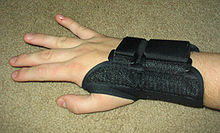
- wrist splint
The most effective conservative treatment is nocturnal splinting with a specially wrist splint. If you use it, avoid wearing it all day, since that can weaken your muscles in your wrists and hands. Wearing it all night, however, is recommended. This should be done at least for 3 month.
If the symptoms persist or the nerve conduction velocity becomes worse, surgery has to be considered. Two main types of surgery are used to relieve the pressure on the nerves inside the carpal tunnel: open carpal tunnel release and the newer endoscopic carpal tunnel release. Both are outpatient procedures performed under local anesthesia (the surgeon cuts the ligament along the middle of the palm and inner wrist). Most people make a full recovery, but in some cases (fewer than 5 percent) carpal tunnel syndrome recurs after surgery. This happens more commonly following the endoscopic procedure, which often doesn’t open up the tunnel as fully as open release.
Migraine / Headaches
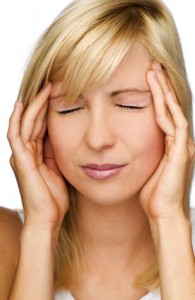 Migraine and headaches are diseases which are extremely stressful for patients concerned but unfortunately they are also very common. Especially migraine is most often accompanied by a one-sided headache, nausea, vomiting, fibrillation, vertigo or even palsies of the face or limbs.These symptoms can reach the pathology of a stroke.
Migraine and headaches are diseases which are extremely stressful for patients concerned but unfortunately they are also very common. Especially migraine is most often accompanied by a one-sided headache, nausea, vomiting, fibrillation, vertigo or even palsies of the face or limbs.These symptoms can reach the pathology of a stroke.
The cause of migraine lies in a faulty regulation of the narrowing and widening of the meningeal arteries. A migraine attack may last for hours or even a few days.
Migraine therapy concentrates on the administration of adequate medication to alleviate the pain on the one hand and extends to a medicinal prophylaxis in order to prevent migraine attacks entirely. Also a change of diet or a change of habits may help to avoid attacks of migraine.
Another very common kind of headache is called tension headache which is mainly caused by a hardening of muscles, especially of the neck muscles. In this case a medicinal therapy to ease the pain is sensible as well as subsequent physiotherapy.
In such cases where psychic or mental reasons lead to tension headaches, psychiatric or psychotherapeutic measures can be taken.
GNC, German Neuroscience Center (Neurology, Psychiatry, Psychology, Counseling in Dubai, UAE)
Vertigo
The causes of vertigo may be manifold. Most often vertigo is the consequence of damages to the internal ear, the equilibrium, the cerebellum or due to circulatory disturbances of the brain.
But also heart diseases or low blood pressure may cause vertigo and dizziness. Even psychic disorders like panic attacks or anxiety can lead to vertigo.
It is therefore imperative that the exact nature of all vertigo complaints is determined in a multidisciplinary way involving especially the examination by a neurologist, an ear nose and throat specialist and a cardiologist.
Only the correct diagnosis can lead to an effective therapy either by medication, by special physiotherapy or psychotherapy or a combination thereof.
Myasthenia gravis
Myasthenia gravis is an autoimmune disease that causes muscle weakness. The body is producing antibodies which are attacking the junction between nerve and muscle.
Most common symptoms of Myasthenia gravis are ocular symptoms (50%) of Drooping of the eyelids (ptosis), double vision (diplopia) and blurred vision. The disease can generalize including symptoms like weakness of facial and extremity muscles. Moreover patients could have difficulties in chewing, swallowing and speech. Respiratory weakness may produce acute respiratory failure.
The symptoms of Myasthenia gravis are negatively influenced by exercise, heat, illness, and stress. Normally they worsen in the evening and get better after resting.
Often myasthenia gravis is associated with other disease like rheumatoid arthritis , scleroderma and systemic lupus erythematosus. 65% of patients with myasthenia gravis have a hyperplasia of the thymus. 15% of patients with myasthenia gravis present a Thymoma.
Myasthenia gravis is a clinical diagnosis by specialized neurologist, supported by specific tests including Cholinesterase inhibitor tests, antibody detection test, EMG (Electromyography), Computed tomography (CT) and MRI of the chest, to detect thymoma or thymic hyperplasia.
The treatment of Myasthenia gravis is effective and most patients are able to live normal lives. Based on the clinical findings it could include certain drugs (Cholinesterase inhibitors, Immunosuppressant agents, Intravenous immune globulin (IVIG)), Plasmapheresis, Thymectomy, Physical therapy and Lifestyle changes.
This website is officially approved by the Ministry of Health, UAE 2283/2/09/07/09/14GNC, German Neuroscience Center (Neurology, Psychiatry, Psychology, Counseling in Dubai, UAE)

